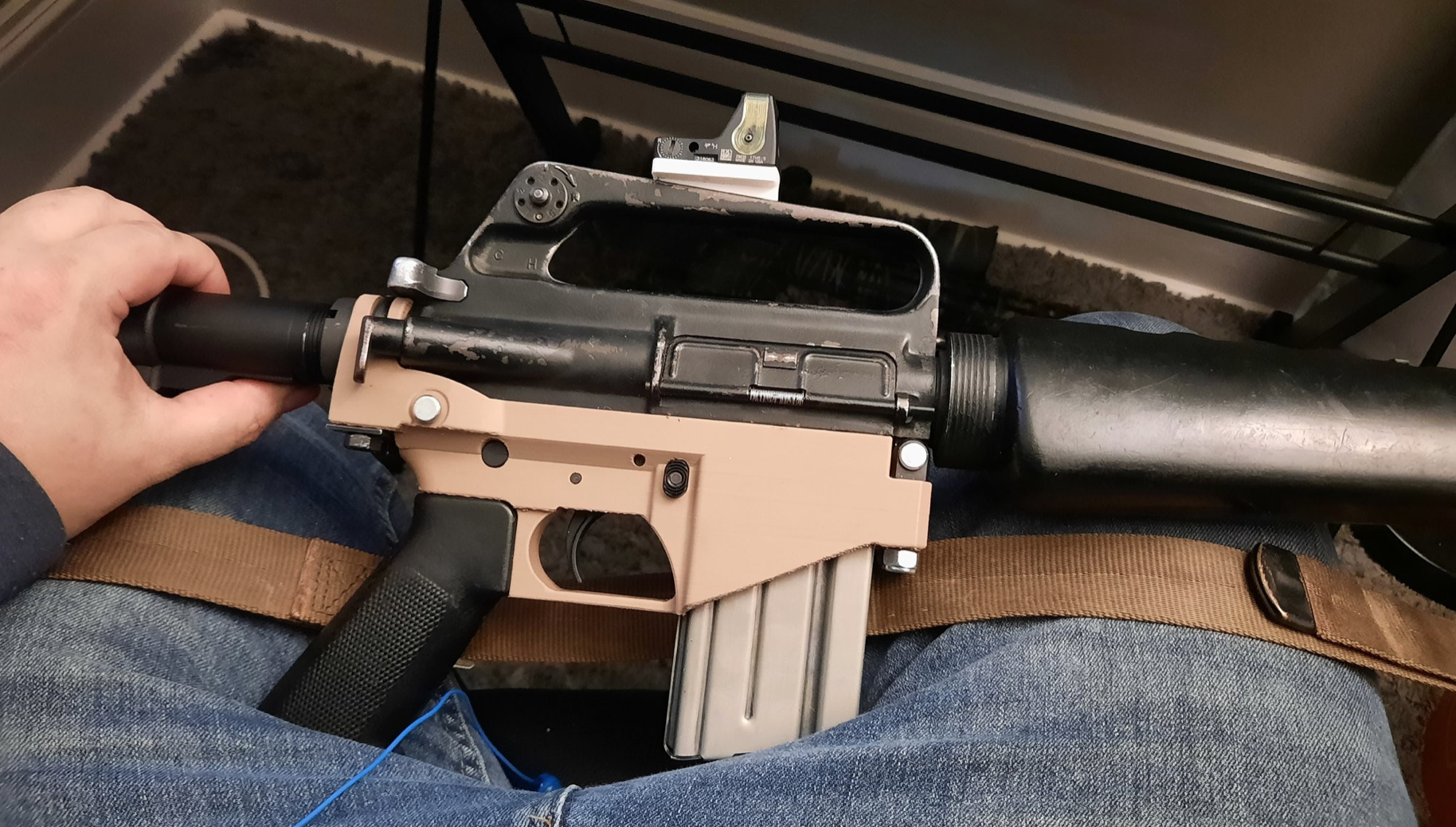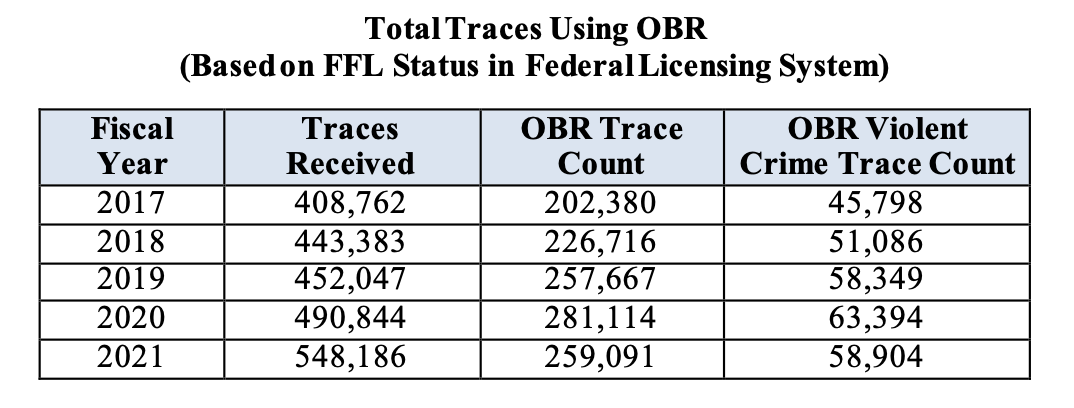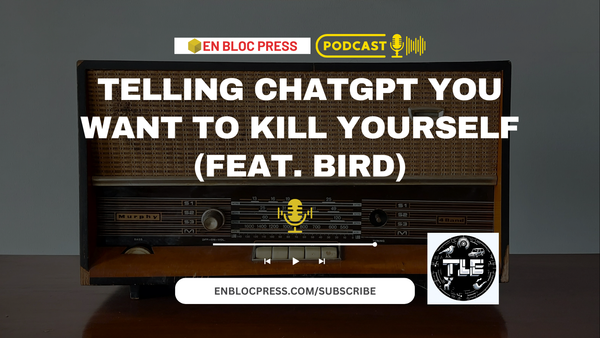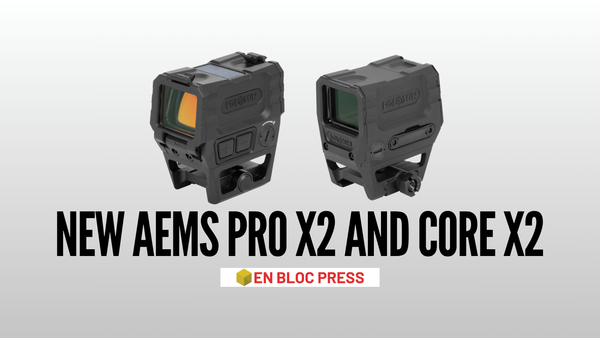Russian Winter - Issue #6 - 2022
The subscriber-only newsletter for the week of February 5th, 2022.

3D Printing & DIY
Let it Eat
31-year-old Roland Caballero of Houston, Texas, is under arrest after spraying down three cops with a full-auto handgun that he produced with a 3D printer. Video below:
Houston police recovered one gun, which had been modified to produce rapid fire, from the car that he was driving. They recovered a second gun he was carrying as he ran away from another scene. A neighbor's cell phone captured it on camera. Police believe both potentially had parts that were created on a 3D printer.
ABC7
Ghost Busters
The Biden administration announced the launch of a National Ghost Gun Enforcement Initiative, which is designed to pressure the DOJ to reduce the availability of such firearms.
Launch a National Ghost Gun Enforcement Initiative, which will train a national cadre of prosecutors and disseminate investigation and prosecution tools to help bring cases against those who use ghost guns to commit crimes
Whitehouse.gov
The effort is part of a broader White House re-commitment targeting guns. [Here]
Carry Handle Gang
RK posted this beautiful-looking 3D printed carry handle RMR mount, perched atop what looks to be a Colt SP1 upper receiver. Also, note that it's mounted to a printed UBAR lower. This is truly an aesthetic mix of old and new.

Ubar II
Speaking of the Ubar, the UBAR2 is now in public beta testing, as announced by Ivan [Here]. Go get in on the action if you feel like contributing. There are eight variants now, designed to accommodate side chargers and high/low shelf designs, among other things.
Oregon Targets 3D Guns
As the Oregon legislative session begins, a proposed ban on 3D printed guns is on the ledger. It looks like this particular bill is too vaguely worded to be taken very seriously, but it's another example of anti-3D printing legislation cropping up at the state or local levels. [Here]
Guns
ATF's Silent Gun Registry
Last week it came to light that the ATF is holding about 920 million firearm transaction records, that about 865 million of these records have been digitally scanned, and that the remaining records are in the process of being scanned.
Specifically, what we're talking here about are called "OBR," or 'Out of Business Records,' which are the records that gun stores are required to remit to ATF when they close or surrender their license.
For instance, if a gun store operates for three years and then closes down, all firearm transaction records are surrendered to the ATF as part of the going out of business procedures. The ATF then retains these paper copies (basically forever) and scans them into electronic storage. These firearm transaction records from closed-down gun stores are called "out of business records" or simply "OBR."
In total, ATF manages 920,664,765 OBR as of November 2021. This includes digital and an estimated number of hard copy records that are awaiting image conversion. It is currently estimated that 865,787,086 of those records are in digitalized format.
-Assistant Director of DOJ
The existence of nearly a billion firearm transaction records is undoubtedly more than previously believed, and the fact that 865M records have been converted to digital copies is uncomfortable. Still, it should have been expected by anyone who's even vaguely familiar with how sketchy the ATF is.
It's technically illegal for the ATF to create a firearms registry, but the collection and digitization of OBR are being used as a kind of a 'back door' to a gun registry. Now, in fairness – most of these records are very old. I'm not saying that makes it okay, but the sky isn't falling; many of the documents here will be 2-3 decades old.
With that said, however, not only does this database exist, but the records are regularly queried. Notice the 259K traces of OBR last year alone.

Your takeaway here should be this: if you buy a firearm from a licensed gun dealer, all bets are off about your privacy. Your background check is run through a national system, and your firearm purchase record will be stored forever by either a licensed dealer or by the federal government. But this has been going on at scale since 1968, and I've seen a lot of overreaction to this news in the past week. This isn't a new practice, and it's not exactly a secret.
If it's a priority for you that your guns are off paper, then private sales are how you should be buying, selling, and trading firearms. The ATF will not simply collect all of this information and then decide to respect the law or your privacy.
Read more [Here].





